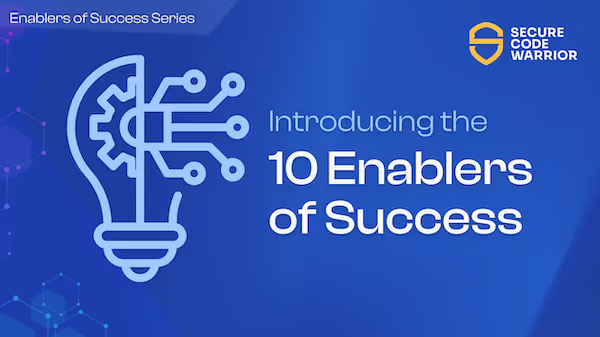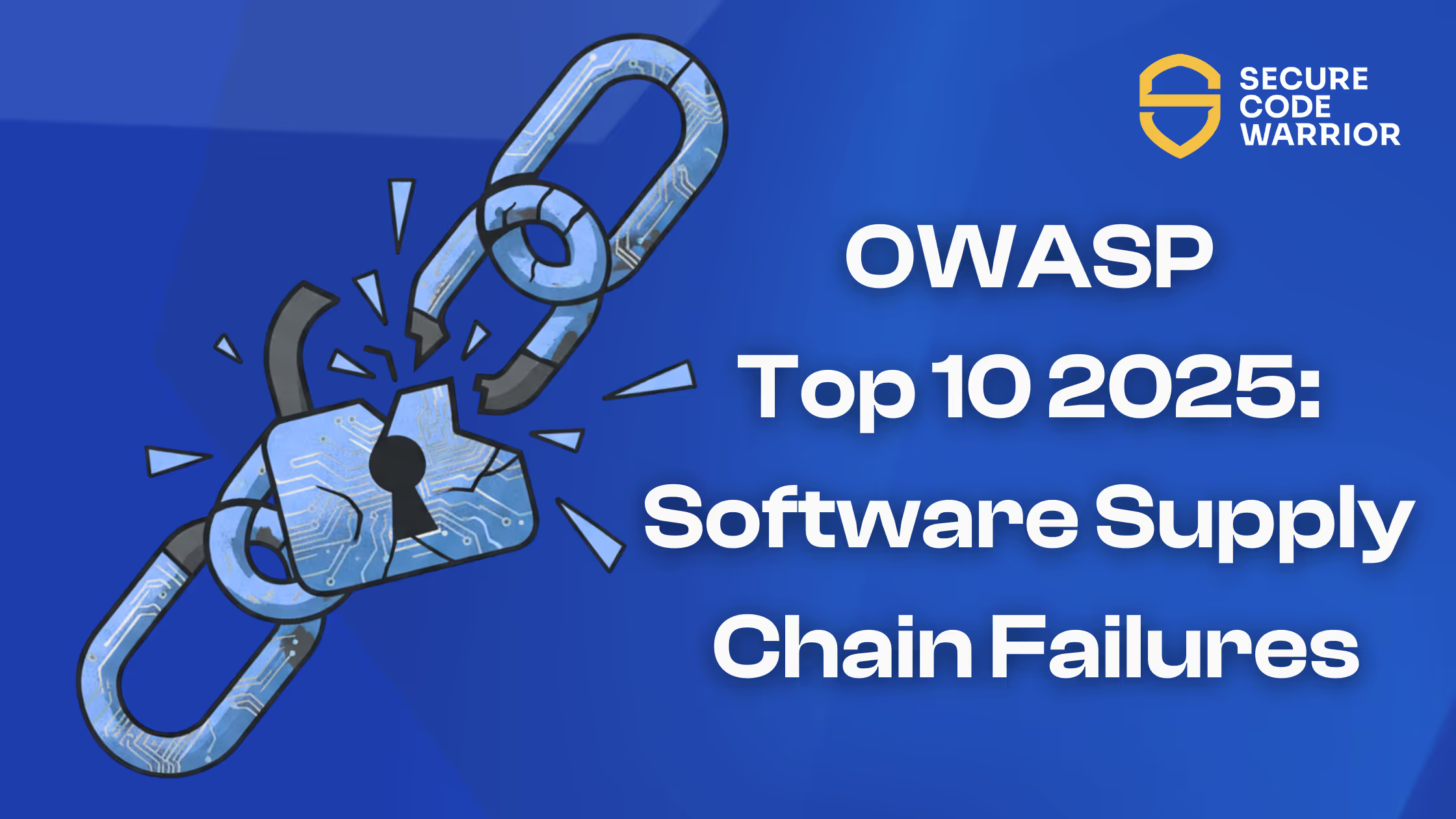
Managers and security champions – the pied pipers and critical influencers of secure coding practices.
Right now, only 15% of developers agree that secure code practices should be everyone’s responsibility. In a world of increasing security threats, that simply isn’t good enough. Something has to be done. One key to creating a healthy AppSec culture is understanding the key influences (and influencers!) at play. So in 2020, Secure Code Warrior engaged with Evans Data Corp. to conduct primary research* into developers' and managers’ attitudes towards secure coding, secure code practices, and security operations.
When it comes to the vital adoption of secure coding practices, certain roles have a growing influence and voice, which can help to compel others to learn and adopt best practice.
The first of these is the development manager, cajoling AppSec-averse developers towards a secure coding mindset. Development managers are aware that they and their teams need to increase and improve their secure coding skill sets. 42% of surveyed managers bemoan the lack of secure coding skills among new hires.
The second is the ‘security champion’. While most developers still see security as someone else's responsibility, there is a small but growing cohort that embraces secure coding and champions it to their fellow coders. 25% of developers surveyed agree that there are go-to people leading the change to secure coding.
While these champions may only be a developer or senior developer, they can have an outsize impact on moving an organization towards a proactive security posture.
But first, let’s have a look at the role of the development manager in this context.

83% of managers surveyed say they ask developers to learn or adopt secure coding practices. Roughly three-quarters of surveyed managers say that they provide incentives for developers to engage with secure code training.
- 67% offer developers the potential for greater responsibility as recognition for learning secure coding practices.
- 47% say that they offer the potential for higher pay.
Many managers put a premium on secure coding skills when hiring new developers and value secure coding experience among developers who are already parts of their teams.
It's clear that at the organizational level, development managers are critical drivers of the adoption of secure coding practices – and instrumental to spotting security champions in the ranks of their developers.
Identifying security champions
One of the keys to improving developer engagement in secure code training and awareness programs is identifying security advocates or champions within the ranks of their current developer cohort.
Some development managers do this already – 55% of those surveyed say they recognize developers who perform well at special events.
As champions of change in secure coding, Secure Code Warrior understands the power of special events and competitions to bring out the best in an organization’s developer base. This is why we have made Tournaments a central plank of our Learning Platform.

Raise security awareness and ownership
With a range of challenges, time limits, leaderboards, and prizes, tournaments generate a buzz that makes secure coding cool and promotes security awareness and ownership.
When it comes to measuring the effect of secure code training, 65% of surveyed development managers say that regular skills assessments drive their organizational focus on secure coding. Tournaments can be used to measure coders’ security skills in an active but safe environment and quickly establish a baseline for future skills development. This gamified training delivers contextual, hands-on experiences in relevant programming languages and frameworks, with challenges that mimic those developers face in the real world.
Throughout the tournament, developers earn points and watch as they climb to the top of the leaderboard. Watching the leaderboard helps management spot potential security champions within their development team.

If you'd like to know more about building secure code skills and awareness with gamified training that engages developers and identifies security champions, book a demo now.
*Shifting from reaction to prevention: The changing face of application security. Secure Code Warrior and Evans Data Corp. 2020

.avif)
Right now, only 15% of developers agree that secure code practices should be everyone’s responsibility. In a world of increasing security threats, that simply isn’t good enough. Something has to be done. One key to creating a healthy AppSec culture is understanding the key influences (and influencers!) at play.
Secure Code Warrior makes secure coding a positive and engaging experience for developers as they increase their skills. We guide each coder along their own preferred learning pathway, so that security-skilled developers become the everyday superheroes of our connected world.

Secure Code Warrior is here for your organization to help you secure code across the entire software development lifecycle and create a culture in which cybersecurity is top of mind. Whether you’re an AppSec Manager, Developer, CISO, or anyone involved in security, we can help your organization reduce risks associated with insecure code.
Book a demoSecure Code Warrior makes secure coding a positive and engaging experience for developers as they increase their skills. We guide each coder along their own preferred learning pathway, so that security-skilled developers become the everyday superheroes of our connected world.
This article was written by Secure Code Warrior's team of industry experts, committed to empowering developers with the knowledge and skills to build secure software from the start. Drawing on deep expertise in secure coding practices, industry trends, and real-world insights.

.avif)
Right now, only 15% of developers agree that secure code practices should be everyone’s responsibility. In a world of increasing security threats, that simply isn’t good enough. Something has to be done. One key to creating a healthy AppSec culture is understanding the key influences (and influencers!) at play. So in 2020, Secure Code Warrior engaged with Evans Data Corp. to conduct primary research* into developers' and managers’ attitudes towards secure coding, secure code practices, and security operations.
When it comes to the vital adoption of secure coding practices, certain roles have a growing influence and voice, which can help to compel others to learn and adopt best practice.
The first of these is the development manager, cajoling AppSec-averse developers towards a secure coding mindset. Development managers are aware that they and their teams need to increase and improve their secure coding skill sets. 42% of surveyed managers bemoan the lack of secure coding skills among new hires.
The second is the ‘security champion’. While most developers still see security as someone else's responsibility, there is a small but growing cohort that embraces secure coding and champions it to their fellow coders. 25% of developers surveyed agree that there are go-to people leading the change to secure coding.
While these champions may only be a developer or senior developer, they can have an outsize impact on moving an organization towards a proactive security posture.
But first, let’s have a look at the role of the development manager in this context.

83% of managers surveyed say they ask developers to learn or adopt secure coding practices. Roughly three-quarters of surveyed managers say that they provide incentives for developers to engage with secure code training.
- 67% offer developers the potential for greater responsibility as recognition for learning secure coding practices.
- 47% say that they offer the potential for higher pay.
Many managers put a premium on secure coding skills when hiring new developers and value secure coding experience among developers who are already parts of their teams.
It's clear that at the organizational level, development managers are critical drivers of the adoption of secure coding practices – and instrumental to spotting security champions in the ranks of their developers.
Identifying security champions
One of the keys to improving developer engagement in secure code training and awareness programs is identifying security advocates or champions within the ranks of their current developer cohort.
Some development managers do this already – 55% of those surveyed say they recognize developers who perform well at special events.
As champions of change in secure coding, Secure Code Warrior understands the power of special events and competitions to bring out the best in an organization’s developer base. This is why we have made Tournaments a central plank of our Learning Platform.

Raise security awareness and ownership
With a range of challenges, time limits, leaderboards, and prizes, tournaments generate a buzz that makes secure coding cool and promotes security awareness and ownership.
When it comes to measuring the effect of secure code training, 65% of surveyed development managers say that regular skills assessments drive their organizational focus on secure coding. Tournaments can be used to measure coders’ security skills in an active but safe environment and quickly establish a baseline for future skills development. This gamified training delivers contextual, hands-on experiences in relevant programming languages and frameworks, with challenges that mimic those developers face in the real world.
Throughout the tournament, developers earn points and watch as they climb to the top of the leaderboard. Watching the leaderboard helps management spot potential security champions within their development team.

If you'd like to know more about building secure code skills and awareness with gamified training that engages developers and identifies security champions, book a demo now.
*Shifting from reaction to prevention: The changing face of application security. Secure Code Warrior and Evans Data Corp. 2020

Right now, only 15% of developers agree that secure code practices should be everyone’s responsibility. In a world of increasing security threats, that simply isn’t good enough. Something has to be done. One key to creating a healthy AppSec culture is understanding the key influences (and influencers!) at play. So in 2020, Secure Code Warrior engaged with Evans Data Corp. to conduct primary research* into developers' and managers’ attitudes towards secure coding, secure code practices, and security operations.
When it comes to the vital adoption of secure coding practices, certain roles have a growing influence and voice, which can help to compel others to learn and adopt best practice.
The first of these is the development manager, cajoling AppSec-averse developers towards a secure coding mindset. Development managers are aware that they and their teams need to increase and improve their secure coding skill sets. 42% of surveyed managers bemoan the lack of secure coding skills among new hires.
The second is the ‘security champion’. While most developers still see security as someone else's responsibility, there is a small but growing cohort that embraces secure coding and champions it to their fellow coders. 25% of developers surveyed agree that there are go-to people leading the change to secure coding.
While these champions may only be a developer or senior developer, they can have an outsize impact on moving an organization towards a proactive security posture.
But first, let’s have a look at the role of the development manager in this context.

83% of managers surveyed say they ask developers to learn or adopt secure coding practices. Roughly three-quarters of surveyed managers say that they provide incentives for developers to engage with secure code training.
- 67% offer developers the potential for greater responsibility as recognition for learning secure coding practices.
- 47% say that they offer the potential for higher pay.
Many managers put a premium on secure coding skills when hiring new developers and value secure coding experience among developers who are already parts of their teams.
It's clear that at the organizational level, development managers are critical drivers of the adoption of secure coding practices – and instrumental to spotting security champions in the ranks of their developers.
Identifying security champions
One of the keys to improving developer engagement in secure code training and awareness programs is identifying security advocates or champions within the ranks of their current developer cohort.
Some development managers do this already – 55% of those surveyed say they recognize developers who perform well at special events.
As champions of change in secure coding, Secure Code Warrior understands the power of special events and competitions to bring out the best in an organization’s developer base. This is why we have made Tournaments a central plank of our Learning Platform.

Raise security awareness and ownership
With a range of challenges, time limits, leaderboards, and prizes, tournaments generate a buzz that makes secure coding cool and promotes security awareness and ownership.
When it comes to measuring the effect of secure code training, 65% of surveyed development managers say that regular skills assessments drive their organizational focus on secure coding. Tournaments can be used to measure coders’ security skills in an active but safe environment and quickly establish a baseline for future skills development. This gamified training delivers contextual, hands-on experiences in relevant programming languages and frameworks, with challenges that mimic those developers face in the real world.
Throughout the tournament, developers earn points and watch as they climb to the top of the leaderboard. Watching the leaderboard helps management spot potential security champions within their development team.

If you'd like to know more about building secure code skills and awareness with gamified training that engages developers and identifies security champions, book a demo now.
*Shifting from reaction to prevention: The changing face of application security. Secure Code Warrior and Evans Data Corp. 2020

Click on the link below and download the PDF of this resource.
Secure Code Warrior is here for your organization to help you secure code across the entire software development lifecycle and create a culture in which cybersecurity is top of mind. Whether you’re an AppSec Manager, Developer, CISO, or anyone involved in security, we can help your organization reduce risks associated with insecure code.
View reportBook a demoSecure Code Warrior makes secure coding a positive and engaging experience for developers as they increase their skills. We guide each coder along their own preferred learning pathway, so that security-skilled developers become the everyday superheroes of our connected world.
This article was written by Secure Code Warrior's team of industry experts, committed to empowering developers with the knowledge and skills to build secure software from the start. Drawing on deep expertise in secure coding practices, industry trends, and real-world insights.
Right now, only 15% of developers agree that secure code practices should be everyone’s responsibility. In a world of increasing security threats, that simply isn’t good enough. Something has to be done. One key to creating a healthy AppSec culture is understanding the key influences (and influencers!) at play. So in 2020, Secure Code Warrior engaged with Evans Data Corp. to conduct primary research* into developers' and managers’ attitudes towards secure coding, secure code practices, and security operations.
When it comes to the vital adoption of secure coding practices, certain roles have a growing influence and voice, which can help to compel others to learn and adopt best practice.
The first of these is the development manager, cajoling AppSec-averse developers towards a secure coding mindset. Development managers are aware that they and their teams need to increase and improve their secure coding skill sets. 42% of surveyed managers bemoan the lack of secure coding skills among new hires.
The second is the ‘security champion’. While most developers still see security as someone else's responsibility, there is a small but growing cohort that embraces secure coding and champions it to their fellow coders. 25% of developers surveyed agree that there are go-to people leading the change to secure coding.
While these champions may only be a developer or senior developer, they can have an outsize impact on moving an organization towards a proactive security posture.
But first, let’s have a look at the role of the development manager in this context.

83% of managers surveyed say they ask developers to learn or adopt secure coding practices. Roughly three-quarters of surveyed managers say that they provide incentives for developers to engage with secure code training.
- 67% offer developers the potential for greater responsibility as recognition for learning secure coding practices.
- 47% say that they offer the potential for higher pay.
Many managers put a premium on secure coding skills when hiring new developers and value secure coding experience among developers who are already parts of their teams.
It's clear that at the organizational level, development managers are critical drivers of the adoption of secure coding practices – and instrumental to spotting security champions in the ranks of their developers.
Identifying security champions
One of the keys to improving developer engagement in secure code training and awareness programs is identifying security advocates or champions within the ranks of their current developer cohort.
Some development managers do this already – 55% of those surveyed say they recognize developers who perform well at special events.
As champions of change in secure coding, Secure Code Warrior understands the power of special events and competitions to bring out the best in an organization’s developer base. This is why we have made Tournaments a central plank of our Learning Platform.

Raise security awareness and ownership
With a range of challenges, time limits, leaderboards, and prizes, tournaments generate a buzz that makes secure coding cool and promotes security awareness and ownership.
When it comes to measuring the effect of secure code training, 65% of surveyed development managers say that regular skills assessments drive their organizational focus on secure coding. Tournaments can be used to measure coders’ security skills in an active but safe environment and quickly establish a baseline for future skills development. This gamified training delivers contextual, hands-on experiences in relevant programming languages and frameworks, with challenges that mimic those developers face in the real world.
Throughout the tournament, developers earn points and watch as they climb to the top of the leaderboard. Watching the leaderboard helps management spot potential security champions within their development team.

If you'd like to know more about building secure code skills and awareness with gamified training that engages developers and identifies security champions, book a demo now.
*Shifting from reaction to prevention: The changing face of application security. Secure Code Warrior and Evans Data Corp. 2020
Table of contents
Secure Code Warrior makes secure coding a positive and engaging experience for developers as they increase their skills. We guide each coder along their own preferred learning pathway, so that security-skilled developers become the everyday superheroes of our connected world.

Secure Code Warrior is here for your organization to help you secure code across the entire software development lifecycle and create a culture in which cybersecurity is top of mind. Whether you’re an AppSec Manager, Developer, CISO, or anyone involved in security, we can help your organization reduce risks associated with insecure code.
Book a demoDownloadResources to get you started
Cyber Resilience Act (CRA) Aligned Learning Pathways
SCW supports Cyber Resilience Act (CRA) readiness with CRA-aligned Quests and conceptual learning collections that help development teams build the Secure by Design, SDLC, and secure coding skills aligned with the CRA’s secure development principles.
Threat Modeling with AI: Turning Every Developer into a Threat Modeler
Walk away better equipped to help developers combine threat modeling ideas and techniques with the AI tools they're already using to strengthen security, improve collaboration, and build more resilient software from the start.












%20(1).avif)
.avif)


.avif)

